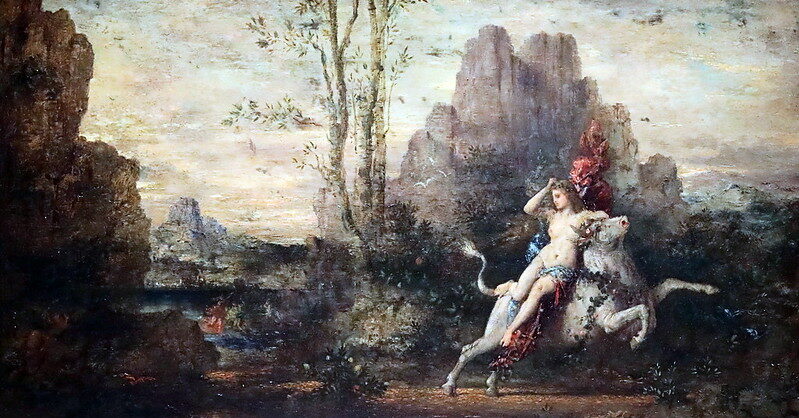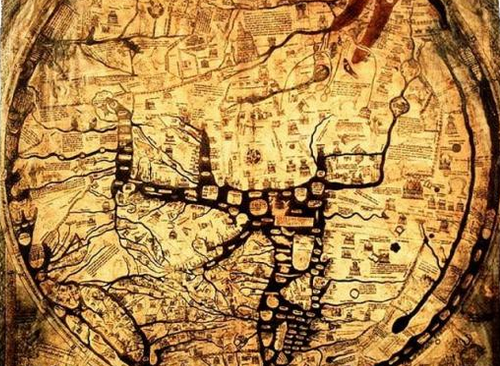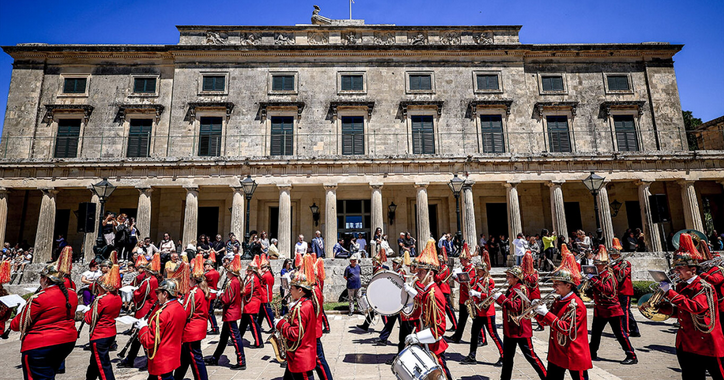Europe is derived from the Greek word/name Εὐρώπη (Eurṓpē) with εὐρύς, eurýs, meaning wide or broad and ὄψ, óps, meaning sight or face. The Phoenecian princess Εὐρώπη (Eurṓpē) who was “taken” by Zeus in the disguise of a bull and the name can be rendered as the “far-sighted” or “wide-gazing”. (credit Klaus Hauptfleisch)
Europe, according to Greek mythology, was the daughter either of Phoenix or of Agenor, king of Phoenicia. The beauty of Europe inspired the love of Zeus, who approached her in the form of a white bull and carried her away from Phoenicia to Crete. There she bore Zeus three sons: Minos, ruler of Crete; Rhadamanthys, ruler of the Cyclades Islands; and, according to some legends, Sarpedon, ruler of Lycia. She later married Asterius, the king of Crete, who adopted her sons, and she was worshipped under the name of Hellotis in Crete, where the festival Hellotia was held in her honour.
feature image credit jean louis mazieres Flickr Stream






































